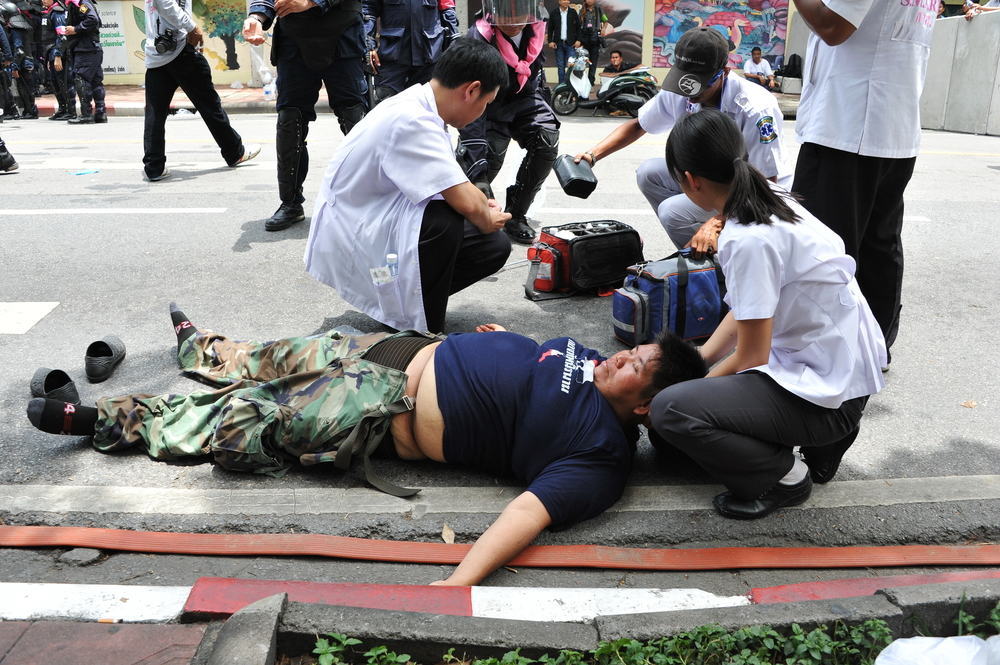Contents:
- Medical Video: First aid for fainting
- Steps to help people faint
- 1. Make the person safe
- 2. Try waking up
- 3. After regaining consciousness
- 4. Contact the hospital
- Emergency signs that must be immediately handled by medical personnel
Medical Video: First aid for fainting
Fainting someone can happen anytime, anywhere, and under any conditions. Even some people tend to faint more often than others. But even though it's "normal" or looks trivial, people who fainted and were unconscious couldn't be left alone.
When someone faints, as reported by Mayo Clinic, the amount of blood to the brain is insufficient, so the consciousness is gone temporarily.
Someone who faints usually does not have a specific medical condition, although it can also be caused by serious health problems. However, immediately handle someone who loses consciousness as a medical emergency until the signs and symptoms decrease and the cause is known.
If someone or maybe you yourself want to faint, do the following two things:
- Lie down or sit down. To reduce the chance of losing consciousness again, don't get up quickly.
- Put your head between your legs if you choose to sit.
Steps to help people faint
Based on written reports WebMD, there are 4 steps you have to do to help people who faint.
1. Make the person safe
- Lay the person on his back.
- Elevate or lift the person's leg (can be held with something, as long as the foot is high) so that blood flow to the brain returns to normal.
- Loosen tight clothing parts, such as unbuttoning pants or shirt buttons.
2. Try waking up
- Shake his body firmly, pat it, or wake it up with a sound.
- If the person does not respond, immediately call an ambulance and do artificial breathing if needed.
3. After regaining consciousness
- If the person is aware, give fruit juice, especially if the person has not eaten more than 6 hours or has diabetes.
- Friend the person until he is fully recovered and refreshed.
4. Contact the hospital
You should contact the hospital immediately if someone collapses:
- Hit his head when he fell.
- Fainted more than once a month.
- Are pregnant or have a heart condition or other serious illness.
- Have unusual symptoms, such as chest pain, shortness of breath, confusion, blurred vision, or difficulty speaking.
Emergency signs that must be immediately handled by medical personnel
Although often a condition that is not serious, there are times when fainting is a sign of other health problems that can endanger life. Immediately call 112 or run to the hospital if the unconscious person also experiences the following:
- Bluish lips or face.
- Irregular or slow heartbeat.
- Chest pain.
- Difficulty breathing.
- Cannot be awakened or made aware.
- Looks confused or dazed after regaining consciousness.
READ ALSO:
- Wow, women are easier to faint than men. Is it true?
- This is the reason we want to vomit when we feel disgusted
- Know the difference between panic attacks and anxiety attacks












